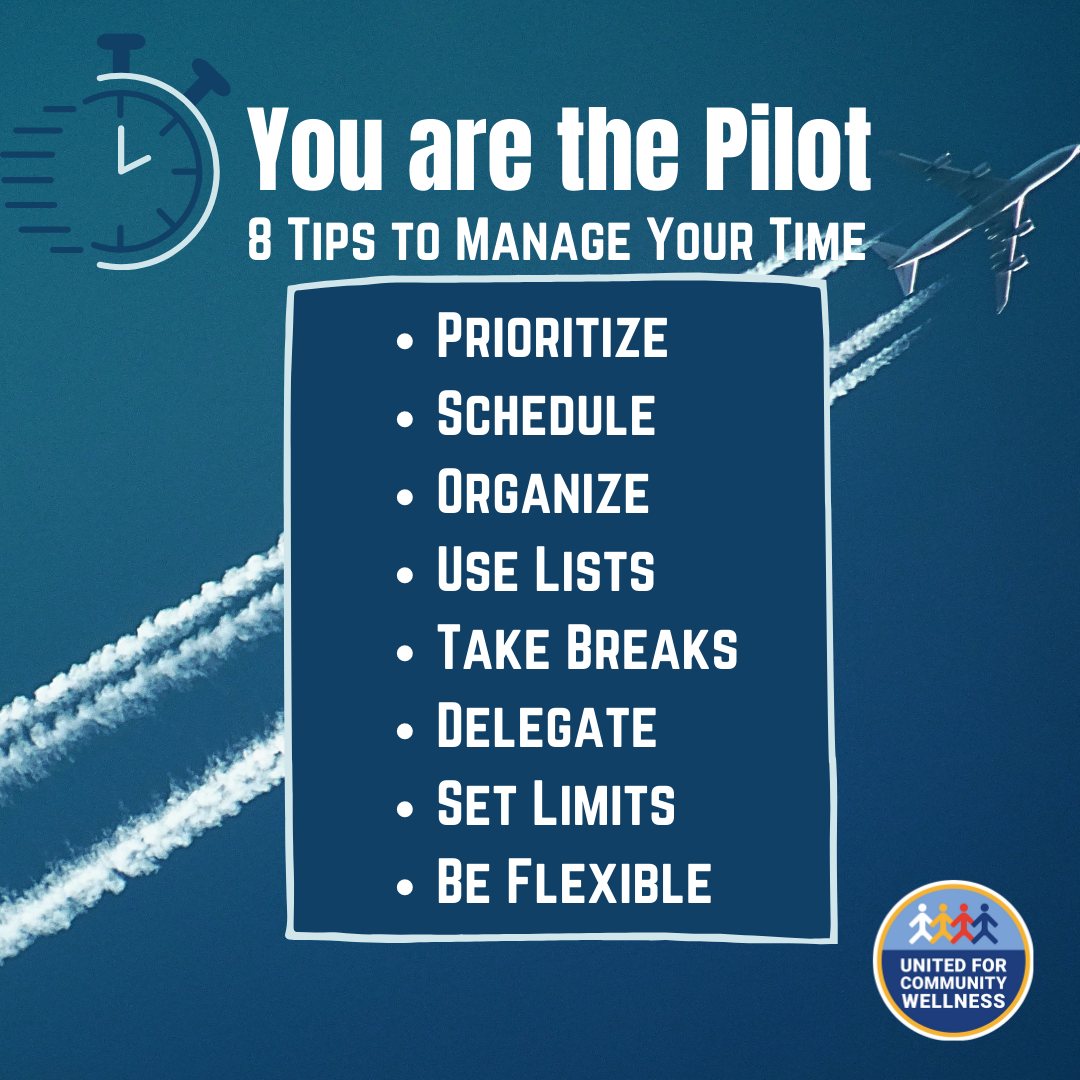Time Management
Intro Posts:
"The bad news is time flies. The good news is you're the pilot." -- Michael Altshuler

8 tips for managing your time…
• Prioritize
• Schedule
• Organize
• Use lists
• Take breaks
• Delegate
• Set limits
• Be flexible

Video:
Stop procrastinating - Solving the procrastination puzzle - Timothy Pychyl https://www.youtube.com/watch?v=3kcWpC9UQzE
Action Post:
Make one list with 5 small things you want to get done today…then check them off as you complete them.

Website/Email/Article:
Time Management Skills for better Mental Health
Many people are busy and overwhelmed right now. Structure, routine, predictability, productivity, and purpose are important in maintaining mental wellness. Below are some ways to manage your time and life.
Prioritize - It is impossible to do all the tasks expected of you at one time. Prioritize so you can complete critical tasks.
- Consider time deadlines, length of a task, how important it is to others and what will happen if it is not done.
- Directly tie priorities to your goals, so goal setting, big picture and day to day is important.
- Make sure goals are manageable!
Create a Schedule - Scheduling helps you set structure to your day.
- Pay attention to the times that work best for you to complete tasks (when there are fewer disruptions or when you have the highest energy).
- Schedules can be a good way to reduce procrastination and keep on track.
- Use a calendar to do longer term planning.
Organize
- Keeping your space clean and orderly allows for more efficient work and increased productivity.
- Clutter in your space can create clutter and distraction in your brain.
Use a “to-do” list - To-do lists help us remember important tasks.
- Trying to keep track of everything in your head is exhausting and anxiety producing. Writing tasks down can alleviate stress.
- Remember to not make your to-do lists too overwhelming – go back to prioritizing or splitting things into smaller steps.
- The added benefit of making lists is crossing off completed tasks.
Rest/Take breaks - It is important to pace yourself. Take time to rest and reset.
- If you work to exhaustion you will not be productive.
- Take regular breaks and set a sensible quitting time.
- Sometimes resting from responsibilities means movement, resting your brain, not your body.
- Practicing good self-care will help you to be less stressed and more productive.
Delegate - Are there tasks that others can do or help with?
- Knowing what and when to delegate is a skill.
- Delegating or sharing duties can build teamwork and positive relationships – and that connectedness is good for your and others’ mental health.
Set Limits
- Limit setting may be learning to say “no” to certain requests or establishing boundaries on your time (not working past a certain time).
- Setting boundaries can also help you establish a good work-life balance and can keep you from overcommitting.
Be Flexible/Adaptable - Things do not always go as planned.
- It is important to adapt to new situations and expectations and to be flexible.
- Unexpected new situations come up and we need to adjust our schedules and expectations.
